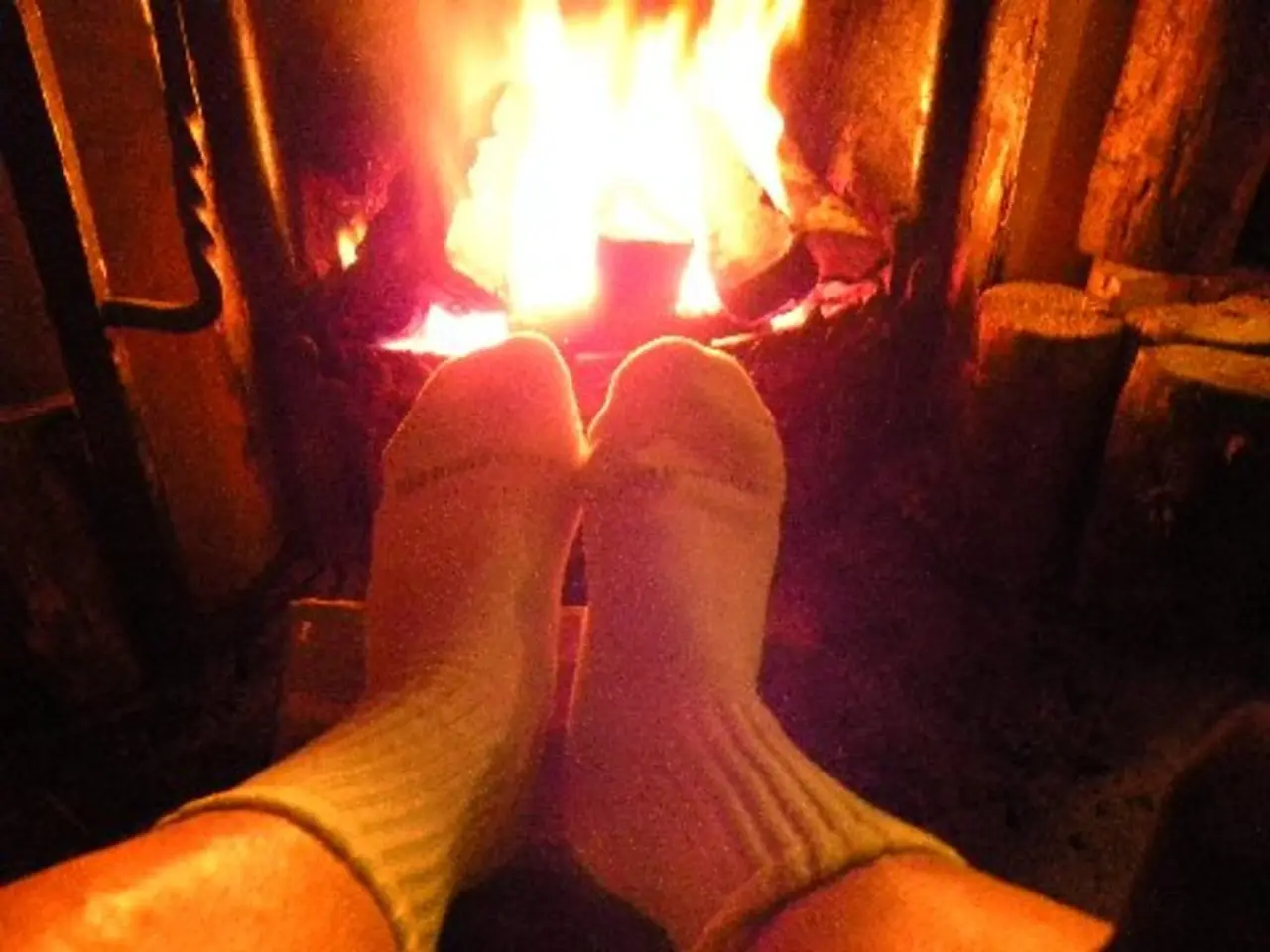Possible remedies for swollen legs:
Heavy Legs on Hot Days: A Common Summer Complaint and How to Alleviate It
In the sweltering heat of summer, many people may find themselves experiencing a sensation of heavy legs. This phenomenon, while common, is not well-understood but is attributed to the body's efforts to maintain its core temperature of 37 degrees.
According to the "Health & Aging Actively" portal of the Federal Institute for Public Health, this occurrence is more prevalent in certain groups, including pregnant women, older adults, overweight individuals, smokers, and those with sedentary lifestyles. The Hessian Chamber of Pharmacists also identifies these groups as being particularly affected by swollen legs in the summer.
The root cause of this issue lies in the dilation of blood vessels, which leads to a drop in blood pressure. As blood rushes to the skin to cool the body, it can cause legs, feet, and other body parts to feel heavy.
To combat this issue, key strategies include staying hydrated, avoiding prolonged sitting or standing, and elevating the legs whenever possible. Elevation helps promote blood circulation and reduce fluid buildup. Regular movement, such as walking or doing simple leg exercises like calf raises, also supports healthy blood flow.
Avoiding excessive heat exposure and using cold-water compresses can provide relief from swelling. Wearing supportive footwear and, if appropriate, compression socks can help reduce leg heaviness and swelling. Maintaining healthy routines such as weight management and adequate sleep further supports leg health.
Drinking plenty of water helps maintain fluid balance and prevents swelling caused by heat edema. Keeping legs raised above the heart level during rest promotes venous return and reduces fluid pooling. Taking breaks to stand, walk, or perform calf exercises prevents blood from pooling in lower legs, especially important for those who sit or stand for long periods.
For some people, graduated compression socks can reduce pooling and heaviness caused by venous insufficiency. However, it's important to consult a doctor if you have vascular concerns before using these socks. Wearing stable, supportive shoes reduces fatigue on legs during hot days or long periods of standing/walking.
Quitting smoking and maintaining a healthy weight improve overall circulation and decrease leg complaints. These guidelines serve as a useful guide for those at risk for heavy legs due to venous insufficiency and fluid retention. By following these tips, you can help alleviate the symptoms of heavy legs on hot days and enjoy the summer to its fullest.
[1] Health & Aging Actively. (n.d.). Retrieved from https://www.rki.de/DE/Content/Infekt/AIDS/Infektionsschutz/Aktuelles/News/News_Detail/Archiv/2018/2018_12/2018_12_20_heavy_legs.html
[4] Mayo Clinic Staff. (2021, March 30). Varicose veins. Retrieved from https://www.mayoclinic.org/diseases-conditions/varicose-veins/symptoms-causes/syc-20350453
[5] Hessian Chamber of Pharmacists. (2021, July 1). Retrieved from https://www.apothekenkammer-hessen.de/informationen-und-tipps/leichte-beine-im-sommer-wenn-die-beine-schwer-fuhlen/
- In the quest to alleviate heavy legs during hot summer days, adopting a health-and-wellness approach that includes regular fitness-and-exercise, such as walking and calf raises, can support healthy blood flow.
- Nutrition plays a crucial role in maintaining leg health, with hydration being particularly important to prevent swelling caused by heat edema.
- For those experiencing persistent leg heaviness or swelling, seeking professional advice on suitable therapies-and-treatments, such as graduated compression socks, might be beneficial, but it's essential to consult with a doctor beforehand.




